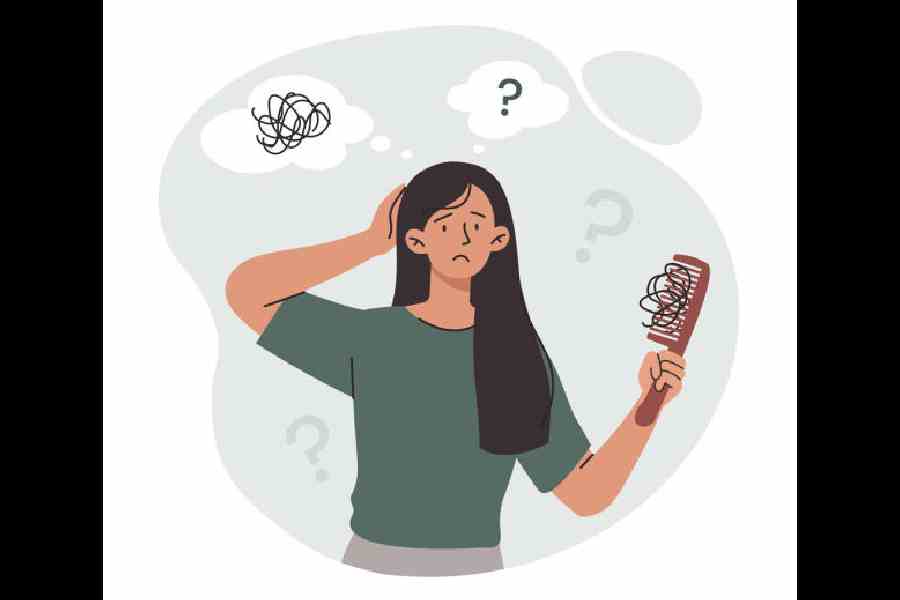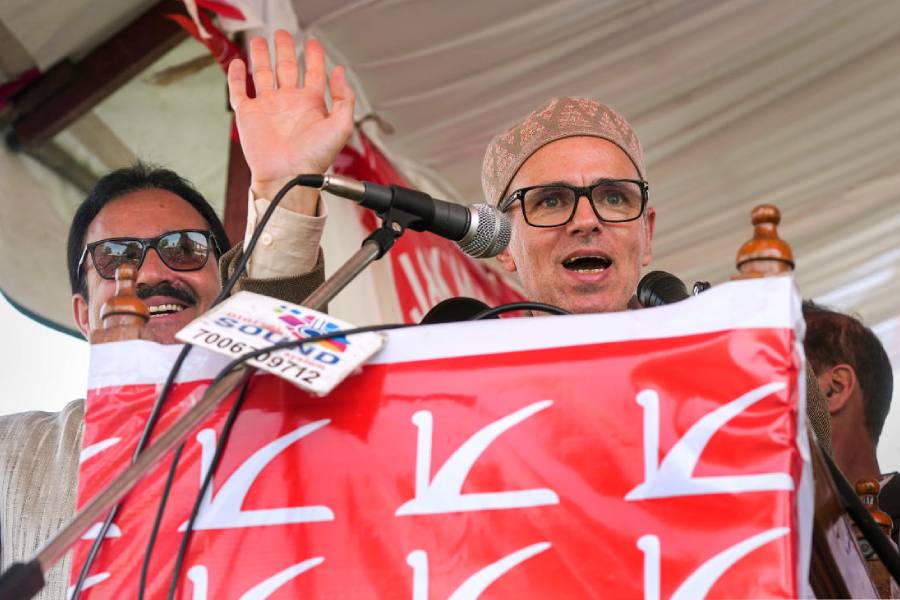A full head of hair is almost an obsession. Some babies are born with very little hair. Although this invites comments, fortunately, most of them get a head full of hair as they grow older. Unfortunately for many of us, our heads do not remain like that; we start losing hair. This becomes a very sensitive point as a headful of hair is associated with youth, vitality and good looks.
There used to be a simple solution for this. In Western culture, men and women wore hats. (Unfortunately, hats were removed indoors so that the bald head was exposed in all its glory.) In India, men wore turbans and women covered their heads with the sari pallu or a dupatta indoors and outdoors.
Hair grows from hair follicles. As age advances, the follicles die. If new follicles do not replace them, hair loss sets in. In women, hair is lost in the front of the head, at the parting or there is diffuse overall loss. In men, the loss is from the top of the head (a bald patch) and the sides. The age and speed with which this occurs is hereditary. Around 80 per cent of the people had a family history of hair loss. There are 63 inherited genes that cause baldness, six of which are located on the X chromosome, which men inherit from their mothers.
The average hair loss is 100-150 hairs a day. This increases in women during pregnancy, childbirth and menopause. In both men and women, hair loss can increase because of a deficiency in iron, zinc, Vitamin B12 or biotin. It can also increase with hypothyroidism, diabetes, cancer and cancer treatment. Some medicines also have hair loss as a side effect. These include antidepressants, anticonvulsants and some drugs used for hypertension.
Fungal infection of the scalp can cause hair to fall out in patches. Also, sometimes the body does not recognise its hair follicles and attacks and destroys them, leaving bald patches. This is called alopecia areata. Sometimes, even eyebrows and eyelashes may be lost.
Hair loss that is not classical baldness needs to be evaluated. Once specific treatment is started, the hair will grow back. Also, if it is due to stress or a sudden illness like typhoid, recovery will occur over some time.
Medications such as Minoxidil are available in shampoo, foam or liquid form. It has to be applied twice a day for men and once a day for women. Hair takes around six months to grow, by which time many people get discouraged. The hair that grows back may appear finer than the original hair. Hair may grow on the forehead and hands if care is not taken while applying this chemical.
Finasteride and spironolactone can also make hair grow. These have to be purchased with a prescription after a check-up and then taken in the correct dose. They may take up to a year to work. They are contraindicated in pregnancy. Injections of steroids or plasma may also be tried. Hair transplants are now very popular and can be used in both men and women.
Some simple precautions need to be followed to prevent hair loss:
n Shampoos should not contain sul- phates or parabens. Take a rupee-coin amount of shampoo, dilute it in 30ml non-greasy hair oil and 30ml of water. Use it on the hair and not the scalp
n Do not wash hair in very hot water or blow dry it on high heat
n Gently towel hair dry
n Use a wide-toothed comb on damp hair. Do not comb harshly
n Do not pull back hair and tie it tightly
n Harsh chemicals are used to colour or straighten hair. They can damage the hair and cause hair fall. If all fails and you don’t want surgery or medication, there are always wigs and hair extensions.
The writer has a family practice at Vellore and is the author of Staying Healthy in Modern India. If you have any questions on health issues please write to yourhealthgm@yahoo.co.in










